My sister and I recently visited the remote, high-desert country of Nevada’s Red Rock Canyon. A surprising number of sightseers, cyclists and hikers filled the trails and observer turnouts, while climbers clung tenaciously to steep cliffs. The silence and breathtaking beauty of the rugged landscape drew me in, as desert places have drawn humankind since the beginning of time. In spite of my gnawing grief after losing a daughter to cancer, the peace of this mystical, wild place enfolded me.
John Moses, Dean of London’s St. Paul’s Cathedral, writes in The Desert: An Anthology for Lent that “fascination” with the desert “lies in the fact that it has nothing to offer,” but that it “speaks of the abandonment of everything in favor of nothing; or, to be more accurate, of the abandonment of everything in favor of God—and God alone.”[1] Loss, failure, misunderstanding, betrayal, or simply craving more than what this world offers—all open our hearts to the desert’s call: seek God alone, in silence and solitude.
Moses, struggling to lead the Hebrews in a vast desert, yearned intently for God, peering through a cleft in a rock as His glory passed by (Exod. 33:18-23). Yet that experience, soul-searing as it was, didn’t erase his human weakness. When the people thirsted during their long desert sojourn, God told Moses to “command the rock…to yield its water,” but he “struck the rock twice with his staff” (Num. 20:8, 11). Did desperation shake Moses’ trust? Yet, he learned to let go of his desire to control, and Moses kept faith with God as a prophet “whom the LORD knew face to face” (Deut. 34:10).
In the wilderness, the Hebrews also struggled painfully as God shaped them into a new people, held to a higher moral standard than their pagan neighbors. At Sinai, amid darkness and thunder, Moses waited forty days to hear from God. But when at last he came down from the mountain, the people received God’s commandments in the Torah, their law—a detailed blueprint for meeting God every day and in every circumstance.
Still, often rebellious, they spent forty years in a wilderness of blistering days and bone-chilling nights, waiting for God to reveal His plan and His promised home for them. Yet, what beauty they beheld. After spring rains gushed into arid canyons, the barren land blossomed with living color. Countless stars lit heaven’s dome, and a lustrous moon marked each passing month the desert held them captive. Their children grew up, married, and had children. Still they wandered—searching, lost. Slowly, their waiting paid off. Powerless and deprived, they learned humility, depending on God alone. By their journey’s end, they discovered who they were as a nation, and they knew their LORD’s Unutterable Name.
Elijah, prophet and miracle worker, incurred the murderous wrath of Jezebel and fled to a desert cave in the wilderness:
Now there was a great wind, …but the LORD was not in the wind; and after the wind an earthquake, but the LORD was not in the earthquake; and after the earthquake a fire, but the LORD was not in the fire; and after the fire a sound of sheer silence. When Elijah heard it, he wrapped his face in his mantle. (1 Kgs. 19:11-13)
In God’s Presence, Elijah had no words. It’s noteworthy that neither did the apostles when they met the resurrected Jesus on the lakeshore; they didn’t dare to ask who he was because they “knew it was the Lord” (John 21:12).
John the Baptist’s disciplined life in the wilderness—facing constant danger, without human comforts, dedicated to God alone—was so extraordinary that people wondered if he “might be the Messiah” (Luke 3:15). His Spirit-filled message of repentance brought hope to those who sensed their empty lives could be changed in the desert, away from Rome’s riches and the Temple priests’ corruption. As his father Zechariah had prophesied, John fulfilled his marvelous purpose by giving “knowledge of salvation to his people by the forgiveness of their sins” (Luke 1:77).
Jesus knew and loved the desert in all its fierce extremes, including evil and angels. “The Spirit immediately drove him out into the wilderness. He was in the wilderness forty days, tempted by Satan; and he was with the wild beasts; and the angels waited on him” (Mark 1:12-13). How intense his prayer must have been, as he embraced the Father’s Will unfolding before him. Later, after exhausting days spent ministering to others, Jesus “would withdraw to deserted places and pray” (Luke 5:16), finding new strength and teaching us to root our actions in prayer.
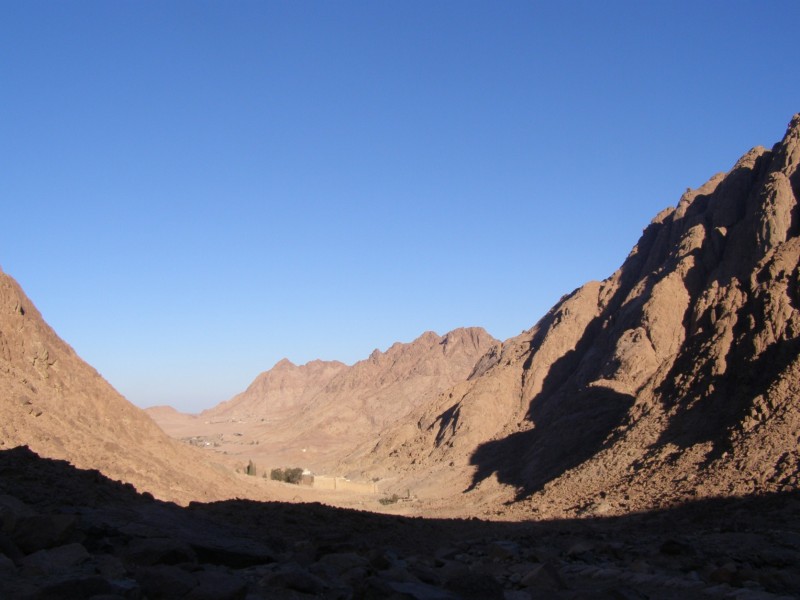
St. Catherine’s monastery, one of the world’s oldest Christian monasteries, at the foot of the traditional site of Mount Sinai. (Photo courtesy of Douglas Priore.)
Early Christian seekers also escaped to the wilderness. Living poorly and simply, they balanced their days with work, study and prayer. Tested and tried, they, too, fought demons of torment and despair, madness and death. Yet, when a desert abba or amma (father or mother, in Aramaic) found God, what marked their lives and sayings was unflinching love, as reflected in this ancient “word,” or morsel of wisdom: “A brother who had sinned was turned out of the church by the priest; Abba Bessarion got up and went with him, saying, ‘I, too, am a sinner.’”[2]
Can we, too, find God in our complex world, far removed from a desert wilderness? Spiritual writers like Reverend Alessandro Pronzato say yes, if we are willing to wait—“purified from haste, agitation, impatience, pressure.”[3] We must seek our own desert, Pronzato insists, and “hold on to it every moment.”[4] But where is this elusive place?
St. Theophan the Recluse, a Russian Orthodox bishop, answers: our desert is within.
Find a place in your heart and speak there with the Lord. It is the Lord’s reception room. Everyone who meets the Lord meets Him there; He has fixed no other place for meeting souls.[5]
This echoes Jesus’ teaching, “Go into your room and shut the door and pray to your Father who is in secret” (Matt. 6:6).
Yet how often, when we pray, relentless distractions break our focus and anxieties tug at our hearts. In Meditations On the Sand, Pronzato shares another insight:
The crowded bus, the long queue, the railway platform, the traffic jam, the neighbors’ television sets, the heavy-footed people on the floor above you, the person who still keeps getting the wrong number on your phone. These are the real conditions of your desert. Do not allow yourself to be irritated. Do not try to escape. Do not postpone your prayer. Kneel down. Enter that disturbed solitude. Let your silence be spoilt by those sounds. It is the beginning of your desert.[6]
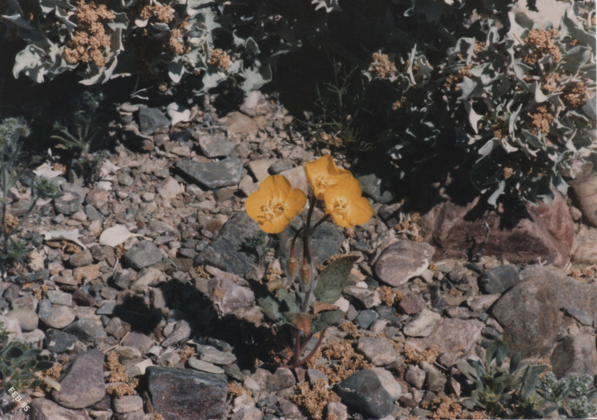
After winter rains, colorful flowers carpet California’s Death Valley, but only for a brief time. (Photo taken by Don Silcox.)
Thus, the world itself is our desert—or, at least, it can lead to our inner desert—where we hear God’s insistent, unsettling call. The desert is about feeling frustrated and helpless, realizing we can do nothing on our own. It’s about total surrender of our will to God which, as the desert fathers and mothers found, leads to Jesus’ Way of fearless, selfless love and service to others. French priest Jules Monchanin writes, “Now is…the hour of the silent offering: therefore the hour of hope: God alone, faceless, unknown, unfelt, yet undeniably God.”[7]
So we wait in our inner desert—peering over the world’s edge in silent awe, trusting that we’ll fall through the darkness into the arms of the God of Love, who waits there for us.
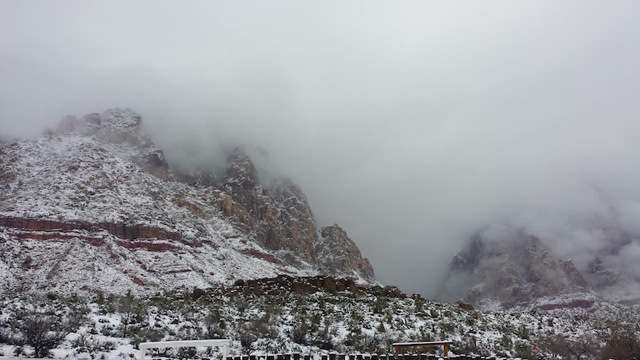
The rugged peaks of Red Rock Canyon in Nevada, shrouded in a thick, silent winter fog. (Photo taken by Blake Penny.)
- [1] John Moses, The Desert: An Anthology for Lent (Norwich, England: Canterbury Press, 1997), xi. ↩
- [2] See The Sayings of the Desert Fathers (ed. Benedicta Ward; Kalamazoo, Mich.: Cistercian Publications, 1975), 42. ↩
- [3] Alessandro Pronzato, Meditations On the Sand (Slough, England: St. Paul Publications, 1982), 4. ↩
- [4] Ibid., 98. ↩
- [5] Cited by John Moses in The Desert, 17, taken from Timothy Ware’s The Art of Prayer: An Orthodox Anthology (London: Faber & Faber, 1966), 73. ↩
- [6] Pronzato, Meditations, 98-99. ↩
- [7] Cited by John Moses in The Desert, 124, taken from Monchanin’s Escrits Spirituels (Paris: Le Centurion, 1965), and originally cited by Thomas Merton in Contemplative Prayer (New York: Image Books/Doubleday, 1971), xix. ↩

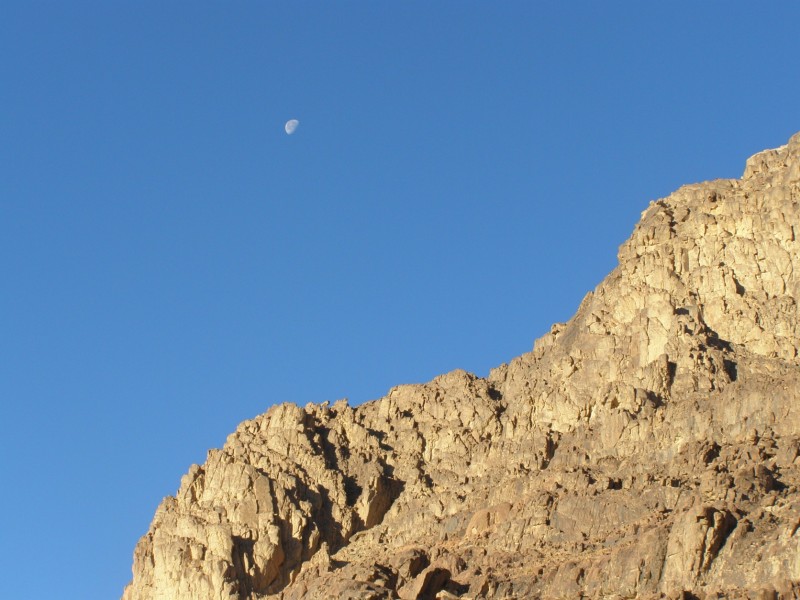
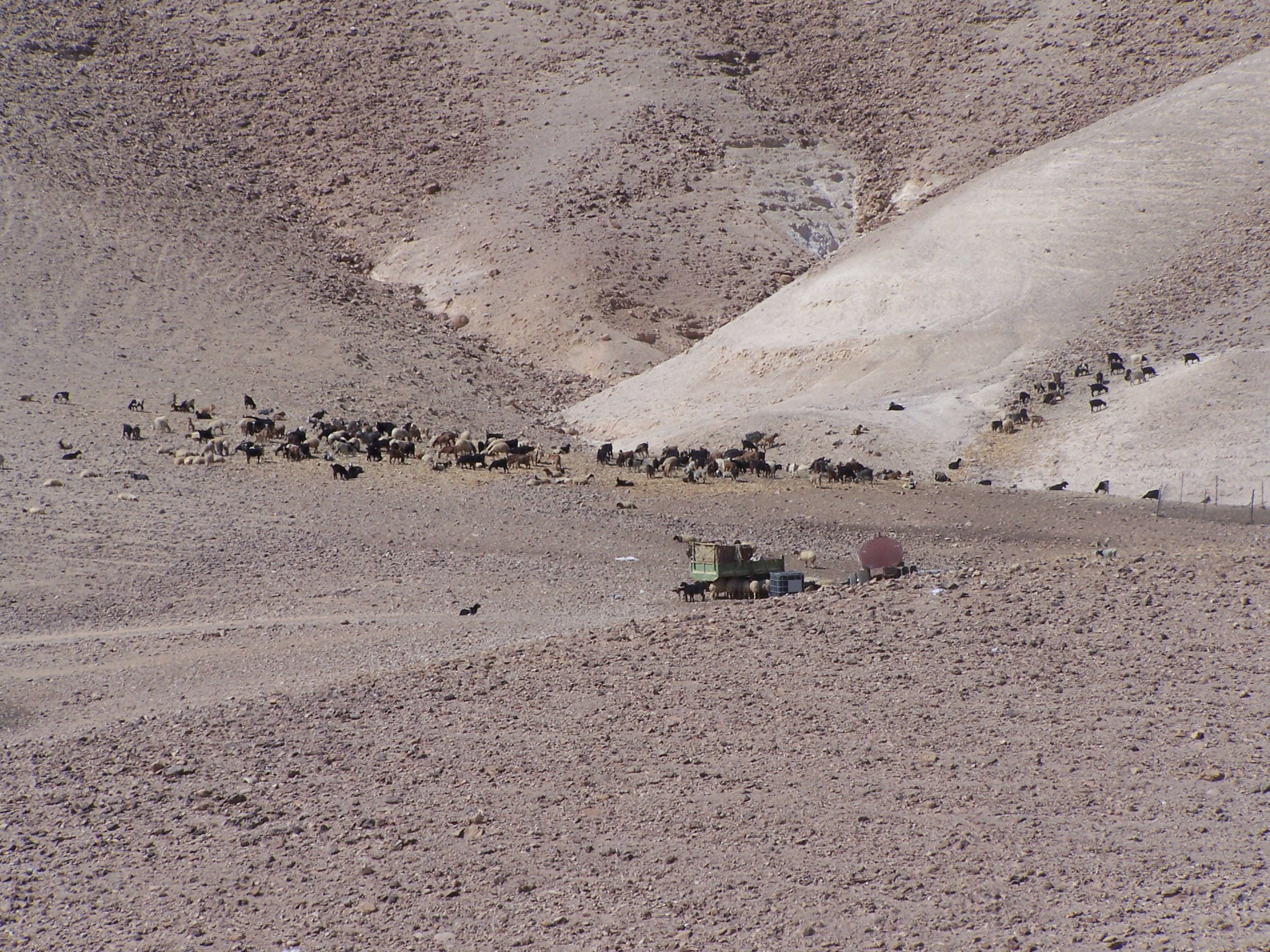






























































































Comments 1
Hi Felicia. Your article is wonderful. What a shame we never used your obvious writing talent at H.M. Gousha. If you care to say hello, JP is free to give you my email address.